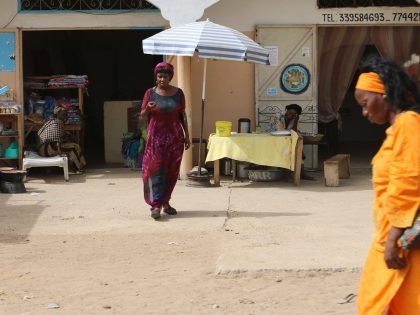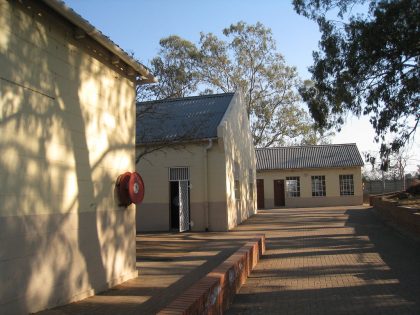
The bedroom adventures of African women
Talking to other African women about sexual experiences, desires, and fantasies without feeling judged.

Talking to other African women about sexual experiences, desires, and fantasies without feeling judged.

The coverage of African women in the mainstream media continues to be lacking and often times problematic. The website, African Feminism, wants to change that.

The Hub of Loving Action in Africa (HOLAA), promotes conversations about African experiences with sex and sexuality.

Rama Salla Dieng talks with a British literature scholar on literary activism in French.

How young, African feminist scholars are using their life experiences as sources and resources for theorizing their feminism.

An anthology series, Women Writing Africa, restores women’s writing to the public archive.

Remembering Adelaide Tantsi Dube’s poem 'Africa: My Native Land,' first published in 1913, the same year the white government stripped black South Africans of their land.

The precariousness of life for women gig workers—in services like cleaning, driving, gardening, beauty supply, and catering—in Kenya.

Urdang reflects her long friendship with fellow political exile Jennifer Davis, the anti-apartheid activist and changemaker.

The life of Lumumba advisor, Andree Blouin, offers lessons about the historically racialized and sexualized representations of women of color in politics.

The use of Evangelical Christianity to oppose progressive policies on sexuality education in schools is another example of Ghana’s march to the right.

In Nigeria, survivors of sexual violence and workplace sexual harassment know that facts are not enough.

To say we are "allies" would be to delude ourselves into thinking that some of us are safe. We are not safe.

The statistics and scenes of violence against black immigrants in South Africa are horrible. A young Cameroonian student in South Africa writes about what it is like to live under such insecurity.

African women, both at home and in the diaspora, use beauty, fashion and other aesthetics to simultaneously celebrate, navigate and challenge social and cultural norms.

Thanks in part to the internet, Black women in Cuba are now able to forge space and create visibility for themselves.

Religious authorities in Senegal are organizing protests against a popular TV series. The outrage could be related to the challenges the series provokes of the "proper" place of women in society.

I have the privilege to fight, argue or board a plane when I feel like I've had enough. The vast majority of women on the continent do not have that option.

In a heteronormative society like Nigeria, men are entitled to sex with any and all women.

The family is the site of extremely violent incidents in South African society—particularly involving women and children. What can the state do?